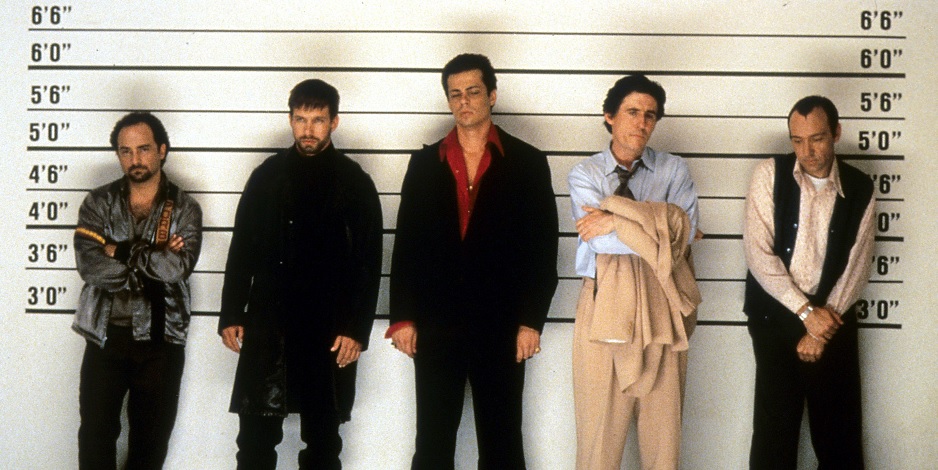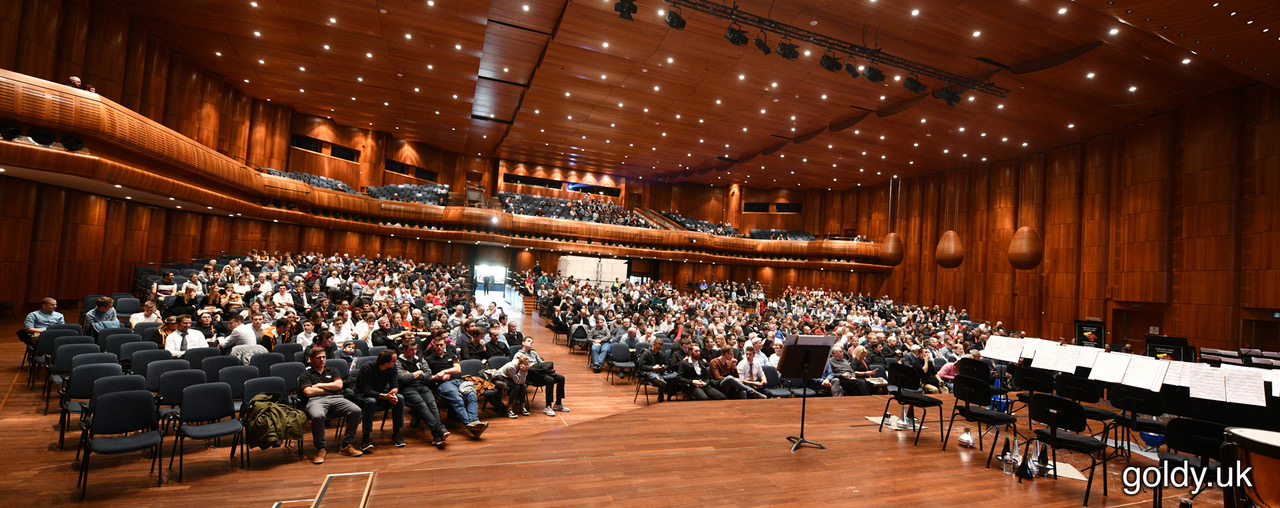
And which one of you is playing Keyser Soze?
Come off it.
You don’t need to employ the detective skills of Tintin to work out which band is going to play ‘Explorers on the Moon’ by Paul Raphael at the forthcoming European Championships in Montreux do you now?
Which is all rather apt really given that the teenage sleuth’s creator Herge (the literary inspiration behind ‘Destination Moon’) let alone its composer was a man hiding behind a creative pseudonym himself.
Come to think of it, you would have to be as useless as Agatha Christie’s inept Captain Hastings not to figure out whose musical fingerprints are going to be all over ‘Glass’ by Simon Dobson or Paul McGhee’s ‘King Kong on Rue Igor-Stravinsky’ either.
And to top it all, a bit of half competent detective work will quickly lead you to the usual suspects lurking in an identity line-up for ‘Concerto Grosso’, ‘From Ancient Times’ and ‘Extreme Make-over’ too.
Link up a couple of clues and even Keyser Soze would be banged up for ten years.
Link up a couple of clues and even Keyser Soze would be banged up for ten years.
And if people think any pretence to own-choice anonymity will survive to the moment a band walks onto the stage at the Montreux Convention Centre on Saturday 27th April, then you may as well put 100 Euro on the odds of Her Majesty’s Constabulary finding out that Lord Lucan will be riding Shergar in the 2.30 from Ascot on the same weekend.
A packed hall, an over-excited audience, patriotic cheers, flag waving hoots and shouts of support (and its brilliantly bedlam) - and you still think the three men in a little white box made of balsa wood and cotton cloth ain’t going to know who’s playing what?

It will be bedlam in this magnificent hall...
End the pretence
The time has come for EBBA to put an end to the pretence and open up the own-choice element.
Jan van der Roost, Thomas Reudi and Rieks van der Velde are a trio of the highest class musicians of the highest class of professional integrity.
Does anyone really think they are going to be consciously or sub-consciously ‘persuaded’ (the usual nonsensical piece of crackpot psychological mumbo-jumbo) by the colour of the jackets or the identity of the bands as they walk onto the stage in their decision making?
It’s all about trust.
Does anyone really think they are going to be consciously or sub-consciously ‘persuaded’ (the usual nonsensical piece of crackpot psychological mumbo-jumbo) by the colour of the jackets or the identity of the bands as they walk onto the stage in their decision making?
Do EBBA believe they have the skill set to do the task asked of them? And do EBBA believe they have trust in them to do so?
If they didn’t they wouldn’t have asked them in the first place.
Just ask them how they would like to adjudicate the contest and let them get on with it. But let’s forget that it has to be done under a cloak of anonymity that has so many holes in it you could use it to strain ‘Brussels Requiem’ sprouts.
History books
And before any traditionalist tries to come up with an argument saying that anonymity has always been a key element of the adjudicating process at this event, then they only have to look back in the history books to find a very different answer.
At the first European Championships in 1978 the competitors were asked by the organisers to perform works that reflected their national character - a decision that to be fair did lead to some odd choices.
No mistaking Manger Musikklag (whose work ‘Norwegian Fantasy’ was written by their conductor Tom Brevik) or the Welsh representatives of Tredegar, performing ‘Owain Glyndwr’ - the last Welsh born Prince of Wales.
The more pragmatic English duo of Black Dyke and Grimethorpe opted for ‘Connotations’ and ‘Checkmate’ - the latter played the day before at the National Championships.

To be fair they cheer like mad for everyone...
Marco Polo
To be fair though, it would have taken Marco Polo in the box to work out that the Irish had mysteriously opted for ‘Norwegian Carnival’, whilst Metronome 66 of Norway for some reason had chosen to play ‘Down Under’ by Ronald Hanmer.
However, to make it even more transparent for everyone concerned - the choices to be played were helpfully printed next to each band’s name in the programme, whilst just in case anyone failed to buy a programme, that bastion of conservatism, ‘The British Bandsman’ had already printed what certain bands were playing in their edition a week before the contest.
And talking of the music - what about the first of the bespoke ‘blockbuster’ test pieces that changed the face of the event back in 2004 with YBS and ‘Music of the Spheres’, or a couple of years later with ‘The Promised Land’ played by Cory at the 2006 event – one that had more iconic Welsh hymns and arias quoted in it than a Max Boyce karaoke tribute band?
It wasn’t to be a one off either.
Unique sounds
Working out the identity of the competing bands on the day has never been that difficult for judges if they so wished anyway - from the unique sound of Philip McCann warbling away with Black Dyke to David Childs playing a virtuoso cadenza after 30 seconds with Cory.
And talking of the music - what about the first of the bespoke ‘blockbuster’ test pieces that changed the face of the event back in 2004 with YBS and ‘Music of the Spheres’, or a couple of years later with ‘The Promised Land’ played by Cory at the 2006 event – one that had more iconic Welsh hymns and arias quoted in it than a Max Boyce karaoke tribute band?
Trying to keep secrets never works – the information is out there for anyone to put two and two together to make an accurate assumption, especially when certain works are written specifically for certain bands at certain events that may then lead to their appearance at the European Championships.
Time and technology, reporting of contests and social media have changed everything.
So let’s come clean - ‘fess up and let the judges do what the judges do best and leave the amateur sleuthing and guessing games up to those who have difficulty working out the identity of the killer in a game of ‘Cluedo’.
Iwan Fox













